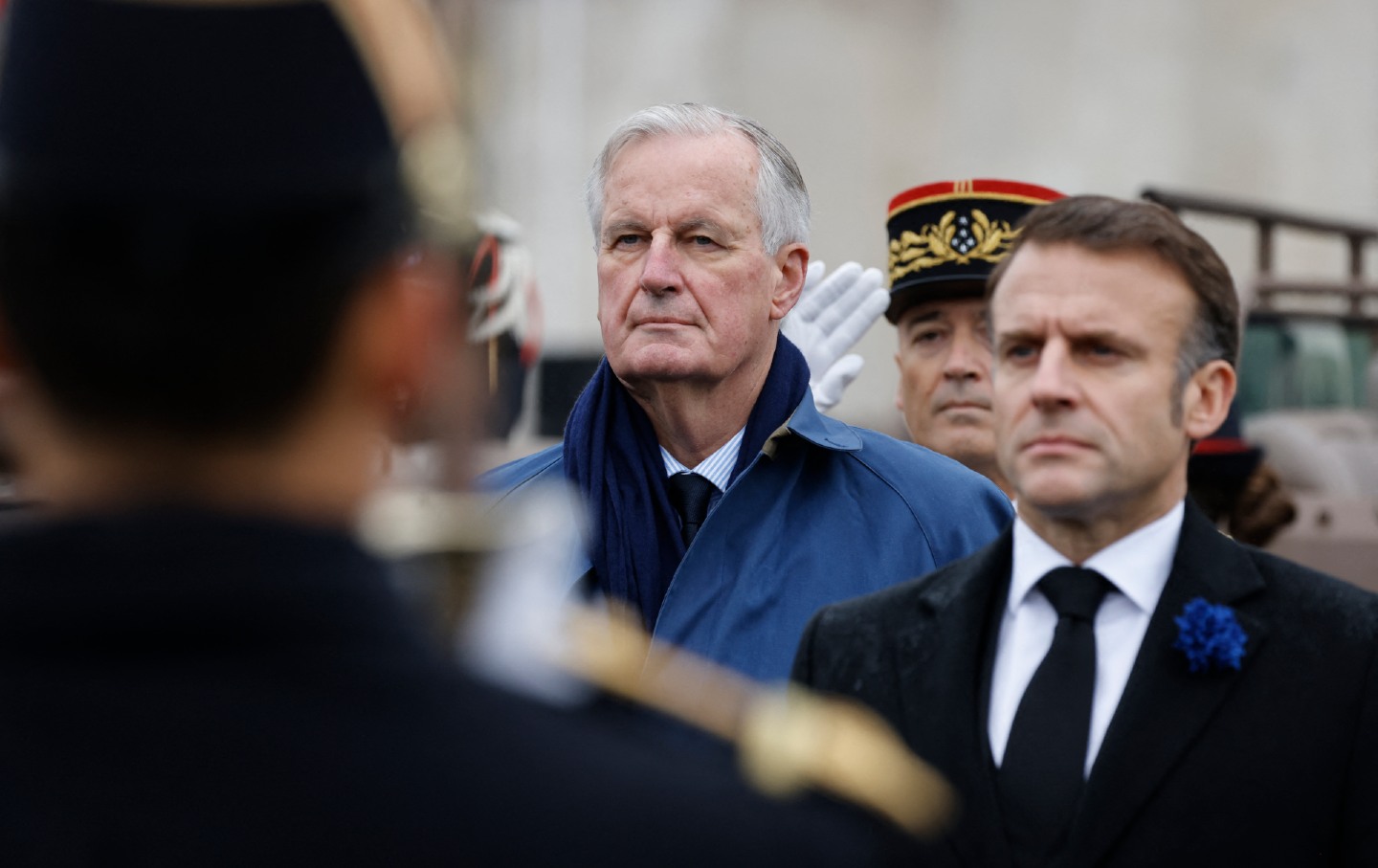Third Temple: Israel’s Occupation Is Coming Home
Netanyahu’s government is not here to debate—it’s here to rule, and any resistance is an intifada.

You know the story about the guy who spends his whole life eating health food and exercising, and in the end a refrigerator crushes him to death? Oh, the irony: You live in fear of one thing, and then a completely different thing gets you.
Take me, for example: I’ve spent years worrying that Israel would annex the occupied Palestinian territories. The idea of an entire population being oppressed by a messianic minority wasn’t part of the country I wanted to live in. But now, there’s a plot twist: Instead of our annexing the settlements, the settlements are annexing us. They’re trying to import the master-slave hierarchy from occupied Palestine into Israel’s 1967 borders—into Haifa, Kfar Saba, and Tel Aviv. The Palestinians provide cheap labor and hummus; we provide pilots and software developers; and if we ever step out of line, we’ll get what’s coming to us. Zero tolerance. The Israeli traitors may not have olive trees to burn, but they have democracy, and, as it turns out, that can also be set on fire.
The occupation is coming home. The settlers are branching out, spreading their drive to expand, to control, to oppress, and their unshakable conviction that they are better—more chosen—than their neighbors. But the old Israeli politics, which has always valued maintaining the status quo, has been replaced by a new politics that believes only in oppression and defeat. Much as it fights the Palestinians, the settler movement now battles liberal Israel: no adversaries, only enemies. No compassion, only a zeal to seize control and dominate.
Behind the slogans about “mutual responsibility” among all Jewish “brethren” hides a holy, timeless desire for revenge. They’re still getting back at the Palestinians for the 1929 riots, and at us for the 2005 disengagement from Gaza. Fashionably late by 17 years, the “hilltop youth” from the settlements are here for payback. Itamar Ben-Gvir is here to teach the secular Zionist Israeli snowflakes what he’s been trying for years to violently teach his Palestinian neighbors.
Related articles
The polarizing settler ideology dominates public discourse in Israel, and just as every Palestinian who opposes a new settlement is branded a “terrorism supporter,” so too is every protester against the judicial coup labeled an anarchist, and every pilot who suspends his voluntary service called “a pustule.” When Minister of Settlements and National Missions Orit Strook likens the Israel Defense Forces chief of staff to the head of the Wagner Group and scolds him for voicing his opinions instead of keeping his mouth shut and following orders, when Ben-Gvir tells the police to hurt demonstrators and urges them to use water cannons, “skunks,” and mounted officers to inflict maximum damage on “his enemies”—that’s nothing new. They and their sidekicks used similar tactics to pressure army troops in the territories, and it got the job done.
Whether it’s up the highway from Tel Aviv or down the road from Nablus, this government is not here to debate—it’s here to rule, and any resistance is an intifada. Everyone knows you don’t solve an intifada by talking. You do it by force. No compromises, no status quo, just a long road, at the end of which await the Third Temple and the Messiah. But his opinions will have to be vetted, of course. Otherwise, we risk ending up with a lefty messiah.








